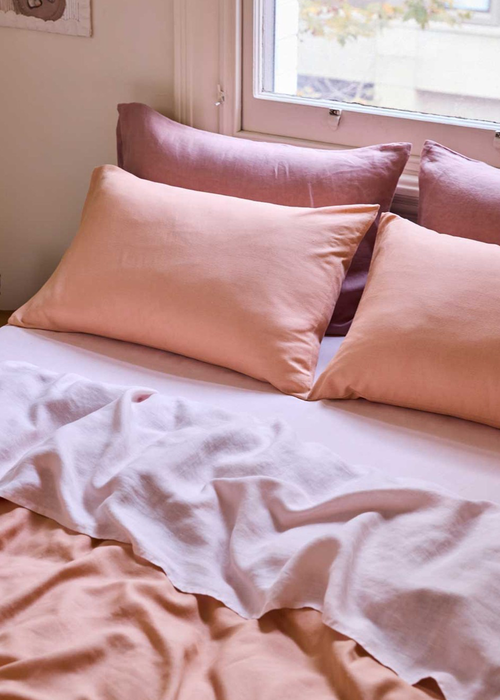
11 Common Linen Care Mistakes You're Probably Making
From storing in plastic to using fabric softener, here's a list of linen no-no's.
So, you’ve taken a big step and invested in high-quality linen bed sheets? Welcome to a new and improved you.
Not only will it give your entire bedroom a Pinterest-worthy uplift, but you’ll also see an improvement in your sleep patterns. In order to take advantage of these luxurious benefits, you need to take proper care of your new best friends so they last a lifetime.
Here’s everything you should avoid when it comes to caring for your 100% Pure Flax Linen sheets.
Enjoyed This?
Discover more linen care articles








